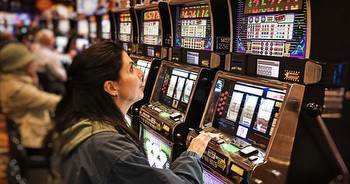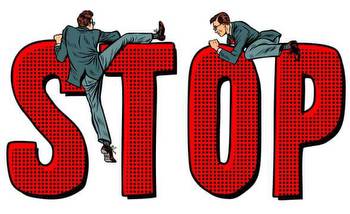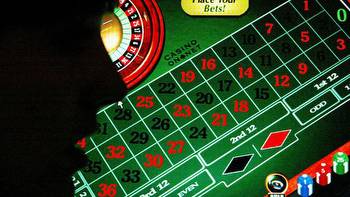Don’t bet on gambling industry deciding to reform itself

The gambling industry, globally, needs urgent attention if the risk of acute social harm, already evident in most markets, is to be contained. To date, in a manner reminiscent of the tobacco industry in the past, the gambling sector has shown little interest in fundamental change, locked as it is in the mindset of maximising the returns for its owners.
We get it. Stop Gambling Harm is an initiative of people who were both institutional and private owners of gambling businesses and who, at one point, were focused on exactly that same singular ambition. That’s what business is about, after all; to paraphrase Friedman, the “business of business is business” so, provided you operate lawfully maximising profit is or should be your sole responsibility. In terms of the gambling industry, and it’s not alone, this represents, today, a far too simple maxim on which to conduct your affairs, especially when the law in many jurisdictions is as weak as it is.
The industry cannot be trusted to initiate the necessary change. This is not a local Irish challenge; it’s not about , the evolution of which the three of us were, to different degrees, involved in, nor is it about the global giant plc that it is part of today. The appetite for growth in the gambling industry is everywhere, as is the suspicion that in most markets legislators are as conscious of the tax revenue created as industry leaders are of the bottom line.
The United States, for so long a no-go area for gambling businesses, opened up following a 2018 supreme court ruling and in those states where it has been legalised some of the excesses are already evident. The mantra in many places is that it’s a matter not for legislators but for independent regulation. This is to miss the point and, in the case of at least some in political life, to evade their responsibility. How effective would any police force or judicial system be without laws that determine right from wrong? Establishing a basis for regulating this industry without legislative reform will not, cannot, facilitate the level of change required.
So, if not the industry and not regulators, to whom can we turn and persuade to influence change? Legislators are critical to this and must be pushed to introduce laws that bind the industry’s hands. This is part of Stop Gambling Harm’s ambition: to add its voice to those already lobbying legislatures to make laws that restrict the potential of the global industry to damage among the most vulnerable in society. What’s new is that we’re calling out the owners too. It’s time the institutional owners, the most powerful cohort of all, intervened to direct the boards of their businesses to behave. It’s the owners that can make the most telling intervention of all. Stop Gambling Harm wants the investment giants and large pension funds to recognise their unique power to influence change and their responsibility to wield it. They must be held to account to do what only owners can do – dictate how their business is run.
Fanciful as that might appear this is what institutional shareholders started to do, for analogous reasons, in other sectors. Prompted initially by the existential threat of the climate crisis and a focus on their ownership of fossil fuel companies, many institutions broadened the scope of their attention to wider issues of sustainability. This can, however generally, be profiled as a growing resolve within the investment community not to invest in businesses that do social harm. This isn’t a new concept – the Romans promoted the importance of profit in commerce but not, they believed, at the expense of the public good.
It is, perhaps, still somewhat optimistic to hope that large financial institutions will lead with this ideal but there are signs nonetheless that some big institutional owners of businesses in different sectors are becoming attuned to the need for a balance between profits and society’s wider need. It would be hard, in this context, for an investor in the gambling sector not to be aware that, without fundamental change, that balance cannot be achieved. The profits are growing exponentially but so too is the societal harm being done by some practices. It’s an indisputable fact.
Stop Gambling Harm is not seeking to threaten the longevity of the industry. That’s neither reasonable nor necessary; its specific targets would, most likely, impact profitability but not excessively and there’s little doubt that the following steps would, over time, see a meaningful impact on societal welfare.
– More restrictive controls for under-25-year-olds as it’s clinically known the frontal lobe of the brain – the critical part in decision-making – does not fully develop until then.
– Mandatory deposit limits for everyone, with a complete ban on VIP schemes and free bets.
– Mandatory application of separate accounts for sportsbook and the more addictive online casino gambling.
– Rigorous controls on advertising around sport and the broadcast of sport.
The last of these loops the argument back to legislators. It’s why our purpose is to press both owners and those who make the law, to intervene to reduce the risk of sustained harm to among the most vulnerable in society. There is, for institutional owners, another if less enlightened basis for them to act. While many in gambling dislike being compared to the tobacco industry there has to be a real risk of future class-action lawsuits from those whose lives were wrecked by an addiction to online gambling. What are the odds?
is one of the founders of Paddy Power and a non-executive director to 2016. Fintan Drury was Paddy Power chairman from 2002 to 2008. led Mercury Asset Management’s institutional investment that brought the company to the stock market





























